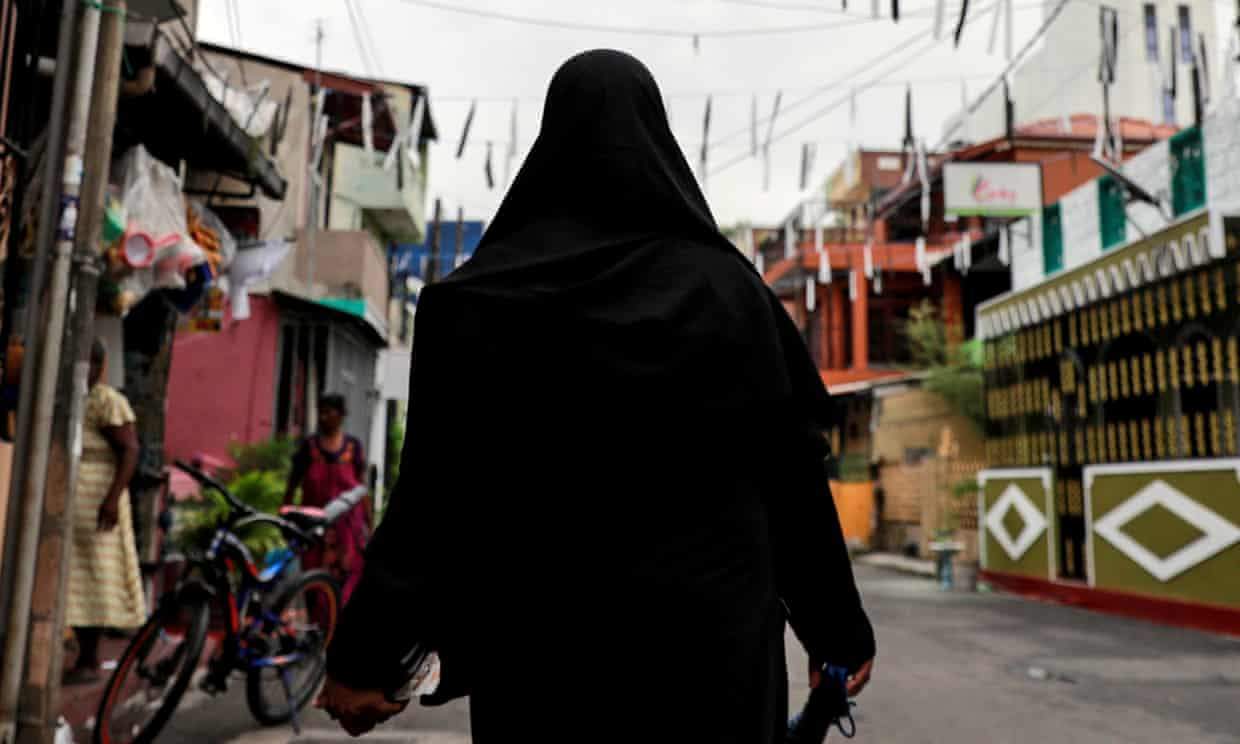Sri Lanka to ban burqa and close 1,000 Islamic schools

Sri Lanka has announced plans to ban the wearing of burqas and said it would close more than 1,000 Islamic schools known as madrassas, citing national security.
“The burqa has a direct impact on national security,” Weerasekara told a ceremony at a Buddhist temple on Saturday. “In our early days, we had a lot of Muslim friends, but Muslim women and girls never wore the burqa,” Weerasekara said, according to video footage sent by his ministry. “It is a sign of religious extremism that came about recently. We will definitely ban it.”
The minister of public security, Sarath Weerasekara, said he had signed a paper on Friday seeking the approval of the cabinet of ministers to ban burkas – outer garments that cover the body and face worn by some Muslim women.
The wearing of burqas was temporarily banned in 2019 after the Easter Sunday bomb attacks on churches and hotels in Sri Lanka that killed more than 260 people. Two local Muslim groups that had pledged allegiance to the Islamic State group have been blamed for the attacks at six locations – two Roman Catholic churches, one Protestant church and three top hotels.
Weerasekara also said the government will ban more than 1,000 madrassas, saying they are not registered with the authorities and do not follow the national education policy.
The decision to ban burqas and madrassas is the latest move affecting the Indian Ocean island nation’s minority Muslims.
Muslims make up about 9% of the 22 million people in Sri Lanka, where Buddhists account for more than 70% of the population. Ethnic minority Tamils, who are mainly Hindus, comprise about 15% of the population.
Photo: Muslims are a minority in Sri Lanka, making up about 9% of the island nation’s 22 million people. Photograph: Danish Siddiqui/Reuters
Link: Sri Lanka to ban burqa and close 1,000 Islamic schools | World news | The Guardian




